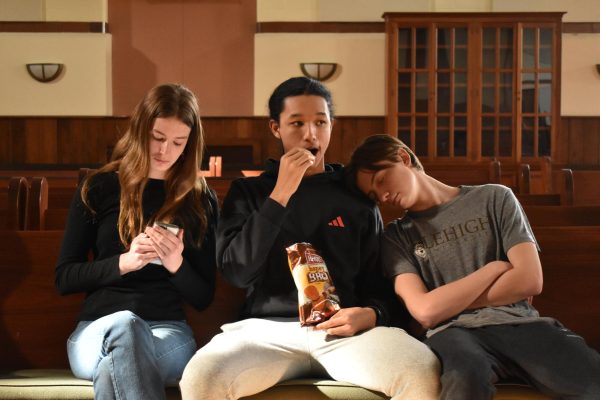Campus Security Debate: A Hinderance
March 2015
After 9/11, President Bush urged Congress to pass the Patriot Act. This piece of legislation, which was passed over a month after the attacks, was designed to provide tools for law enforcement to help them prevent further intrusions upon our nation by persons deemed as terrorists. This act broadened the ability for law enforcement to track data and communications, and paved the way for the FBI to have the legal right to obtain private documents relating to bank, telephone, and internet records of American citizens. Many believe the act to be inherently in conflict with amendments regarding illegal searches and seizures of private property by the government. The Patriot Act is a classic case of reactionary policy-which is when, after a major event, an agenda of policy is pursued by an institution which is a direct reaction to the event that took place. In the case of Wilmington Friends School, the wide expansion of security is a reactionary policy to relatively recent events such as the Sandy Hook massacre. While increasing security is a worthy cause, especially in a school environment, there are concerns about whether the policies correspond to the school’s mission and whether they maintain the open and community-oriented spirit of the school.
In September of 2014, Wilmington Friends School announced that the administration had expanded campus security by issuing new security cameras at various locations around the school campus. This was a new addition to the administration’s agenda of security, which by the new school year had already included cameras on the main doors to the school, locked doors at 8:00am, a key card entrance system for faculty members, and an overhauled system for parent visitors involving visitor cards. Before these changes, there were not any cameras on the doors and there was no system of pressing a button to have the door unlocked. There were not any security cameras in the school building. The school was generally more open and accessible to students, faculty, and community members.
Under Wilmington Friends Philosophy and Beliefs, the school stresses that it intends to “model and teach a commitment to…integrity, community, equality, peace, stewardship and simplicity.” With these principles in mind, it is imperative to apply them to the school’s drastic shift to tighter security and observe and question whether these principles are being fulfilled or not. Integrity is diluted by the presence of security cameras that are solely there to watch students, faculty, and other community members. The cameras are in place with the implicit idea that members of the community are up to bad things and they must be caught on camera. The WFS community has been weakened by the lack of openness that these changes have brought about. Equality, on one hand is satisfied because everyone has to experience equal invasions of privacy; however, it is not satisfied because, as a whole, everyone losses small freedoms, which in turn contributes to inequality. The message of peace is another ambiguous principle because it is realistically strengthened by having tighter security, but the true message of peace is vastly diluted by the fact that the school believes peace is achieved by fear and closing the school up. Overall, the key Quaker principles are violated in the school’s attempt to increase students’ and faculty’s security.
Wilmington Friends School has historically prided itself on a tangible and Quakerly sense of openness to the community around the school. This is evidenced by Alapocas residents allowing half of their streets to be used for school parking and the wide campus that stretches to the soccer and lacrosse fields. This feeling has largely been taken away by the vast increase in security. This is an unfortunate turn of events because Friends is exceptional, in many students’ minds, due to its sense of community, not only among each other, but among Alapocas as well.
There is a line between maintaining security and maintaining integrity of the school’s principles. In many ways, the vast upgrade to security for the school has taken away or diluted many of the ideas and values that make the Wilmington Friends School so great. The actions of one psychotic man in Connecticut should not affect our school to the point where it truly degrades the very values the school intends to teach to students. Although the goal of protecting students and faculty is inarguably very noble, the school has gone too far in this goal. They have broken the balance between security and values.





































